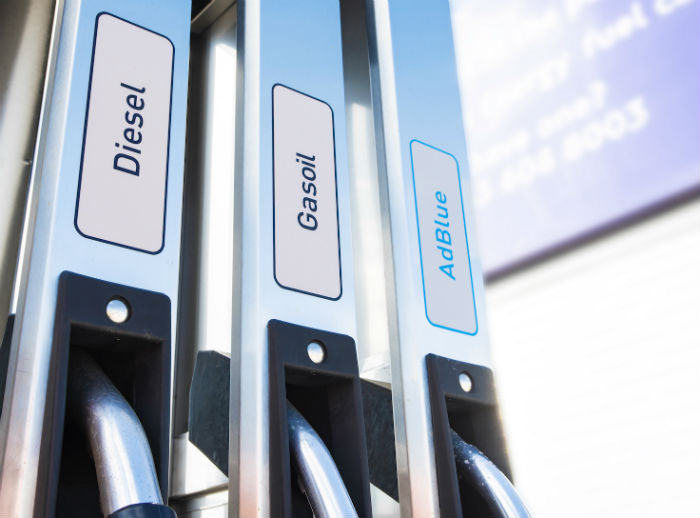
With air pollution regularly exceeding legal limits across the UK, the transport sector is under increasing pressure to reduce levels of harmful local emissions.
AdBlue is essential for ensuring certain engines comply with legal emissions standards and is a basic operational requirement for Euro 5 and Euro 6 vehicles. Without it, transport businesses could be putting the public, the environment and the workforce at risk through illegally high levels of NOx emissions.
However, roadside tests carried out by the Driver and Vehicle Standards Agency (DVSA) revealed that a concerning number of vehicles in the UK are fitted with emission cheat devices. Some of these illegal devices switch off the use of AdBlue, which is stored next to the diesel fuel tank, disabling the warning light on the dashboard which would alert the driver that the AdBlue system was not functioning.
The penalties
Since an initial pilot in 2017/2018 found that 1 in 12 inspected vehicles were fitted with AdBlue cheat devices, the DVSA has been cracking down on AdBlue cheats. The penalties can be serious.
If a transport company is found to be using AdBlue emulators and does not remove the devices within 10 days, they face a £300 fine and the offending vehicle/s being taken off the road immediately. In addition to the financial cost of replacing an AdBlue system, the matter will be referred to the Traffic Commissioners for Great Britain. At this stage, transport businesses may be at risk of losing their operating licence.
So why is it so important to ensure a vehicle’s AdBlue system is fully functional?
Why do HGVs need AdBlue?
AdBlue is an exhaust fluid that reduces a vehicle’s emissions of nitrogen oxides (NOx) from a vehicle’s exhaust system through selective catalytic reduction (SCR). It reacts with NOx in SCR catalysts in a vehicle’s exhaust system to break the gas down into nitrogen and water – significantly reducing harmful NOx emissions.
Keeping it clean
While purchasing cheaper, low-grade urea solution may seem like an attractive way to cut costs, this can cause expensive issues in the long run. As AdBlue has a very precise composition (32.5% urea to 67.5% deionised water) to ensure efficacy in the NOx reduction process, the presence of any additional elements or compounds can cause damage to the SCR catalyst. Issues can include a build-up of deposits on the catalyst that increase pollution levels, and more severe blockages on the catalyst can lead to pressure build up and decreased fuel economy.
Contaminated AdBlue can also cause problems, so it’s vitally important to ensure that whatever you use to dispense the fluid is pristine. If dirt, oil or diesel finds its way into an AdBlue system, it can cause malfunctions and lead to higher levels of NOx emissions.
To avoid costly maintenance in the long run, it’s best to purchase high-quality AdBlue. To be sure your chosen product meets the necessary standards, purchase AdBlue from a VDA licensed partner and ensure the label mentions ISO 22241 compliance.
All AdBlue supplied by Certas Energy is ISO 22241 compliant and available in a variety of formats including jerry cans, IBCs and bulk. We also supply a range of dispensing equipment including electric pumps, hand pumps and IBC dispensers – to help prevent contamination.
ISO 22241 compliant AdBlue can also be purchased on-the-go at each of our strategically located bunker refuelling sites across the country. Available alongside diesel and gas oil, drivers can fill up on high-quality AdBlue using a Certas Energy Fuel Card.



